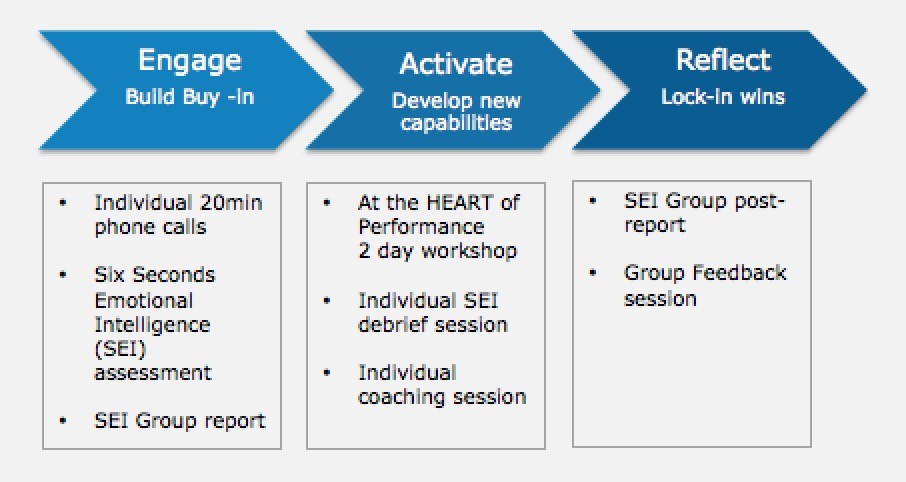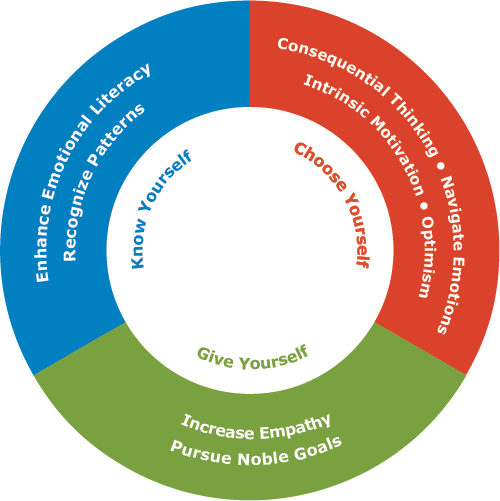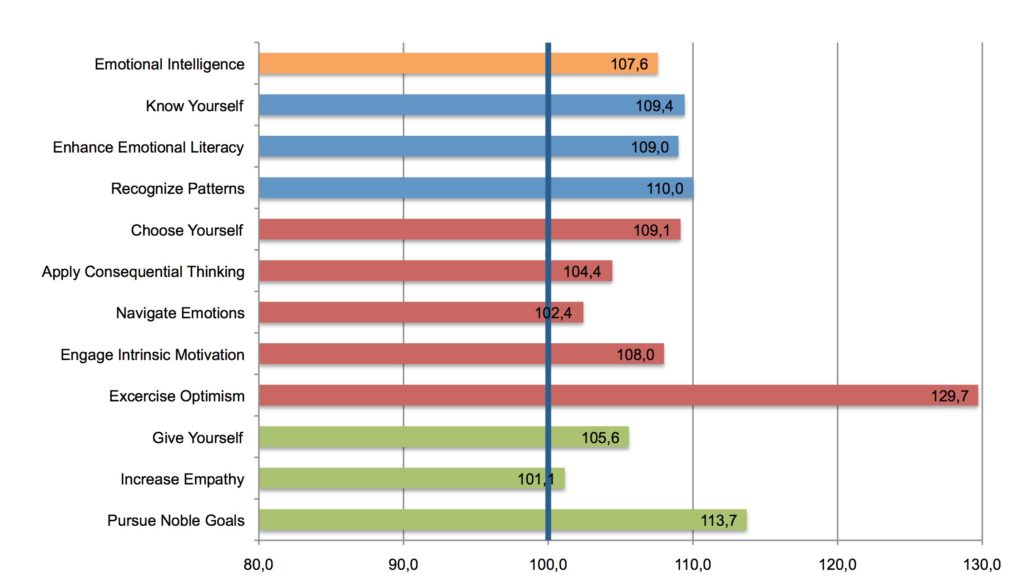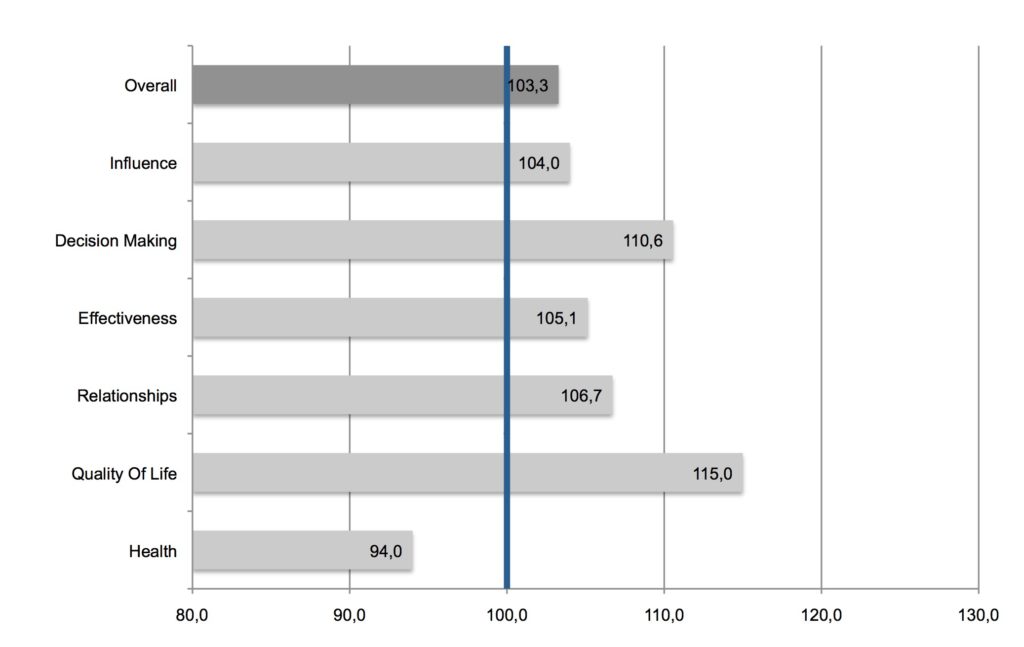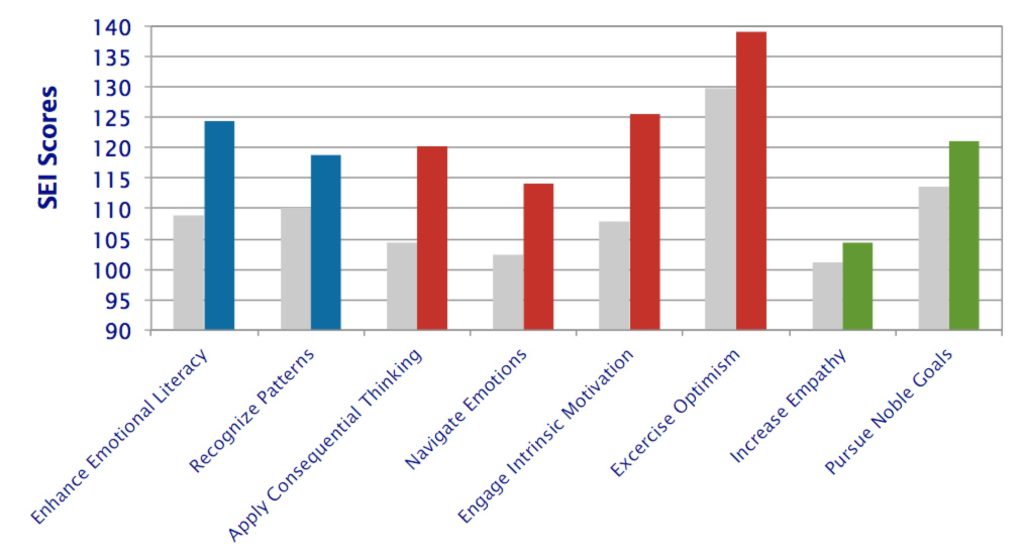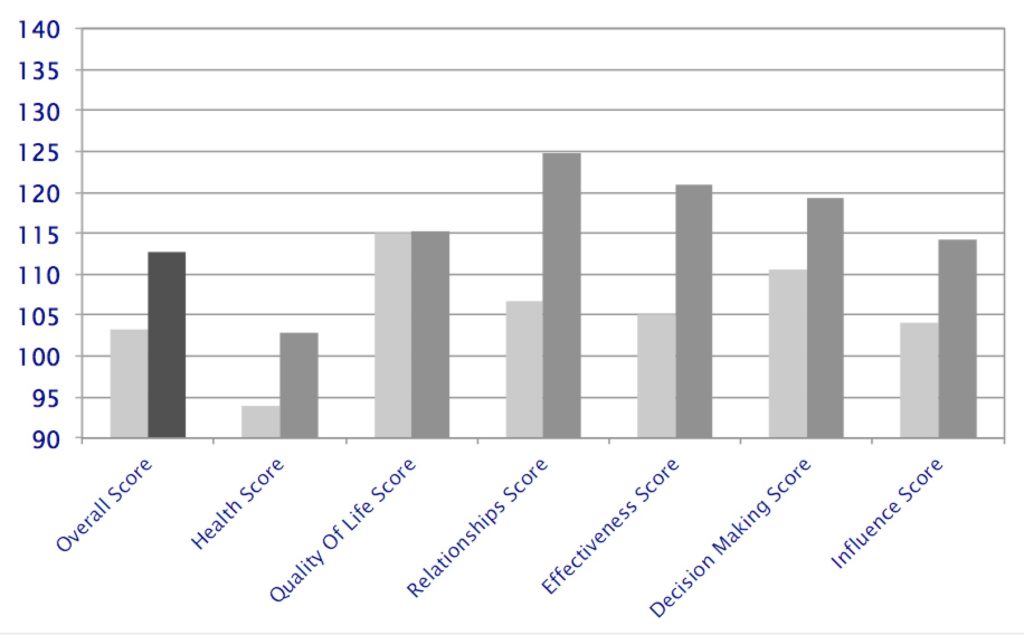In one of the world’s leading pharmaceutical companies, a Key Accounts team on the verge of collapse implements a six-month learning and coaching intervention based on the Six Seconds Emotional Intelligence assessment and methodology. Following the intervention, emotional intelligence scores increase by 8.9% correlated with double-digit financial growth, high performance evaluations and multiple promotions.
Background: Team Challenge
A world-renowned pharmaceutical company, faced challenges with team critical for business performance. While the company name is confidential, the team’s leader, Dr. Ernest Makram, agreed to provide comments for this case.
Makram’s team is called KAM – for Key Accounts Management. The team was established with the responsibilities of:
- Representing, portraying and maintaining the positive image of the company in the market.
- Being the central point of contact of key decision makers.
- Being the active link and liaison between key entities such as Dubai Health Authority and Ministry of Health, and internal heads of departments.
A year after startup, the KAM Team was on the brink of collapse, with team members identified to be made redundant. Essentially, there was a lack of clarity on the Team’s purpose and direction, which lead to an unfavourable perception of the Team throughout the company. The lack of acknowledgement and recognition from the rest of the company impacted the quality of work generated and lead to a loss of trust, confidence and credibility in the Team.
The KAM members showed a loss of self-confidence, decrease in optimism and motivation and a reluctance to being proactive. On going behavioural challenges from hostility, aggression, frustration, resentment was observed.
“The Team was crushed, devastated and experienced a great loss of confidence and morale. They were confused, unclear and uncertain in respect to their roles and expectations”
– Dr Ernest Makram.
When he became Head of Team, Dr. Makram identified that the Team’s purpose and identity within the company was not understood or appreciated. Further, the status quo had a negative effect on the Team’s confidence, morale and ego. Makram knew that in order to transform the team’s performance and productivity, he had to address key underlying elements – the human elements – that drive performance and productivity.
“In this case, it was crystal clear this team needed EQ as a key part of the transformation we wanted to create. They all had the IQ it takes to perform and deliver results, but they needed the force behind that – investment in the human element”
– Dr Ernest Makram
Implementation: EQ for Team Performance
To support this mission-critical team to increase performance, the company contracted Dynamic Learning, a specialized consultancy based in Dubai expert in Six Seconds emotional intelligence tools and methods. In collaboration with the Head and the Training Manager, Dynamic Learning designed a 6-month Learning Journey blending training and coaching.
The project was designed using Six Seconds’ Change MAP, an iterative process for organisational transformation. The Change MAP follows three phases: 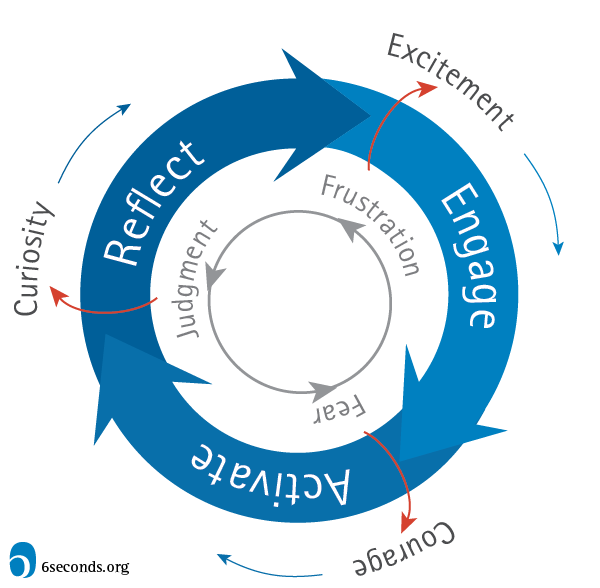
The Change MAP creates a structure to design and manage the team development process. The design begins with engaging people in the process by using data, then developing skills, and finally by re-assessing and clarifying growth. The design of the team development program is shown in this chart:
Engage: Creating a Path for Change (Phase 1)
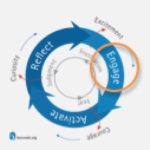 The phase began with meetings with the Head of the Team and the Training Manager to identify a clear set of goals and expectations.
The phase began with meetings with the Head of the Team and the Training Manager to identify a clear set of goals and expectations.
“I wanted an intervention that would be on-going, something that the team would benefit from not as a short-term quick-fix, but something that will enable them to realise their true potential – continue to enable them to keep doing better, to keep going, to continue to be a better version of themselves”
– Dr Ernest Makram
The next step included phone conversations with each Team member to establish their level of motivation and readiness for change, and inform them of the Learning Path.
Team Assessment Tools
Each Team member completed the SEI, Six Seconds Emotional Intelligence assessment, to determine levels of Emotional intelligence, strengths and possible obstacles.
The SEI is based on the Six Seconds Model of Emotional Intelligence consisting of eight core competencies divided into three macro areas:
Self Awareness, called “Know Yourself” includes two competencies: Enhance Emotional Literacy and Recognise Patterns.
Self Management, called “Choose Yourself” includes four competencies: Apply Consequential Thinking, Navigate Emotions, Engage Intrinsic Motivation, Exercise Optimism.
Self Direction, called “Give Yourself,” includes two competencies: Increase Empathy and Pursue Noble Goals.
The assessment provides an overall EQ score plus scores for each of the three macro areas and each of the eight competencies for a total of 12 normative values:
From the individuals results we generated a Team Report:
GR: Group Report – this profile shows distributions of EQ competencies. It is designed for program planning, and for coaching/training.
SEI Group Report Results
Emotional Intelligence Competencies:
Performance Outcomes Linked to Emotional Intelligence:
The results indicated that the Team members had a Functional level of Emotional Intelligence, indicating that in most situations the Team’s skills were serving them well, but may become a challenge in times of stress. On average their strength lay in taking a proactive perspective of hope and possibility and connecting their daily choices with their overarching sense of purpose. The Team members appeared to have the capacity to maintain balance and satisfaction between work and personal life and perceive their decision-making abilities to be high.
Challenges that the Team members on average faced included the ability to recognise and appropriately respond to others emotions (Empathy) and being able to assess, harness and transform emotions as a strategic resource (Navigate Emotions). The Team members on average under evaluated risk before getting involved; this had an impact on their ability to manage their emotions when things did not turn out the way they envisioned. The Team appeared to ‘run over people’ to achieve their own goals; this together with their lower Consequential Thinking had an impact on their low Health scores.
Activate: Developing Team Skills (Phase 2)
 Based on the information gathered from the Engage phase we developed a 2 stage approach:
Based on the information gathered from the Engage phase we developed a 2 stage approach:
- Training
- Coaching
Training
Dynamic Learning tailored a 2-day workshop on Emotional Intelligence.
The workshop focused on the following objectives:
- Identify personal levels of emotional intelligence
- Recognise how emotional intelligence improves effectiveness, decision-making, influence, relationships, and career status
- Increase self-awareness by learning about emotions and patterns; the ability to act with intention; and the power of purpose
- Develop skills to increase self-management and its importance in developing relationships
- Identify ways to leverage strengths / develop in areas for improvement
Coaching
The coaching process began with a one-to-one debrief of the participant’s SEI profile as a framework for goal setting. The coachee identified specific competencies to improve, as well as strengths to leverage, and how those could be employed to improve performance. The coaching process was specifically tailored to each individual’s set goals. The coaching sessions where spread out with a 4-week gap to allow members to apply the new behaviours and identify further challenges.
“It was curious to notice how open and transparent the individual members became as the journey progressed. During the workshop I had to probe to get individuals to open up, as they increased their self awareness they became more open to sharing and dealing with challenges they themselves created”
– KAM Team Coach
Reflect: ROI from EQ Intervention
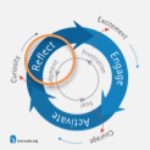 After the 5 month intervention the Reflect phase included the Team members re-taking the SEI assessment to measure improvement and Return on Investment. The result was presented to them in a workshop format to identify the Status Quo and next steps for improvement.
After the 5 month intervention the Reflect phase included the Team members re-taking the SEI assessment to measure improvement and Return on Investment. The result was presented to them in a workshop format to identify the Status Quo and next steps for improvement.
Pre-Post Emotional Intelligence Assessment
The images below show the comparison between the 2 SEI reports with a 5-month gap. The coloured and shaded bars are the latest results.
Comparison of Emotional Intelligence Competencies:
Comparison of Performance Outcomes:
The Team’s overall EQ increased by 8.9%, moving from being Functional to Skilled; a significant improvement in a short time. The significant increase in Enhance Emotional Literacy (14.2%) assisted individuals to identify and understanding their own feelings, which had an impact on their ability to better manage their feelings (Navigate Emotions); and in turn increased their ability to evaluate the costs and benefits of their choices, including behavioural choices (Apply Consequential Thinking 15.2%). This ability as well as the improvement on being able to manage their emotions – responding versus reacting – had a positive effect on the Relationships Score (16.9%).
The greatest improvement was in the Engage Intrinsic Motivation competency (16.3%); this indicates a stronger internal drive to gain energy from values and commitments versus being driven by external forces. This was a profound improvement as the external environment had a significant effect on the Team’s motivation prior to the interventions. The improvement in motivation led to the Team viewing their efforts as more effective; increasing the Effectiveness outcome score.
Overall the results are more balanced and stronger than before.
Company Results
At the end of year the KAM Team was the only country in MENA region that achieved their financial targets and showed outstanding double digits growth.
The perceived behavioural changes of the KAM Team by end 2014 was elicited through a company survey, the top changes were as follow:
- They have a strategic vision
- Have a more significant impact on the company
- More focused and dedicated
- Easier accessible and more approachable
- Include others and are more supportive
- More fun to work with
3 members of the Team were promoted after the interventions:
- One was headhunted by another pharmaceutical company (among the top 5 globally), with regional responsibilities as Head of KAM of Gulf region
- 2nd moved internally in the company to another division with regional responsibilities
- 3rd was promoted to Head of Commercial Operations
Head of Team’s Perception
The change was transformation on all levels throughout the team. It was gradual but tangible every step of the way, exactly what I wanted.
High levels of motivation, drive, enthusiasm and optimism fueled performance. There was willingness to work, achieve, deliver, and exceed expectations. The quality of work produced was excellent. The synergy between the team members was strong, proactive and dynamic. The relationships between the Team members flourished, I was witnessing fantastic communication skills, excellent levels of understanding, cooperation and collaboration. I remember seeing them coaching each other through challenging times and situations!
On a personal level, they felt a sense of uniqueness – that they shared something profound, an experience only they can understand, and that allowed them to bond and relate to each other on a much more personal level than ever before. They felt proud.
That pride alone, after experiencing feelings of alienation, lack of importance and undervalued work, speaks volumes.
The bottom line from Dr. Makram:
“It is clear that EQ changed the life of each one in the KAM team and the good thing is that this change will have its domino effect and will help others to have a new life”
♦
About the Authors
- Youth for Youth – Celebrating Emotional Intelligence – IGNITE POP-UP Festivals in Saudi - February 8, 2022
- Igniting Hope in our Students: Three Sparks - March 23, 2021
- 5 SEL Check-In Activities for Your Classroom - March 16, 2021

